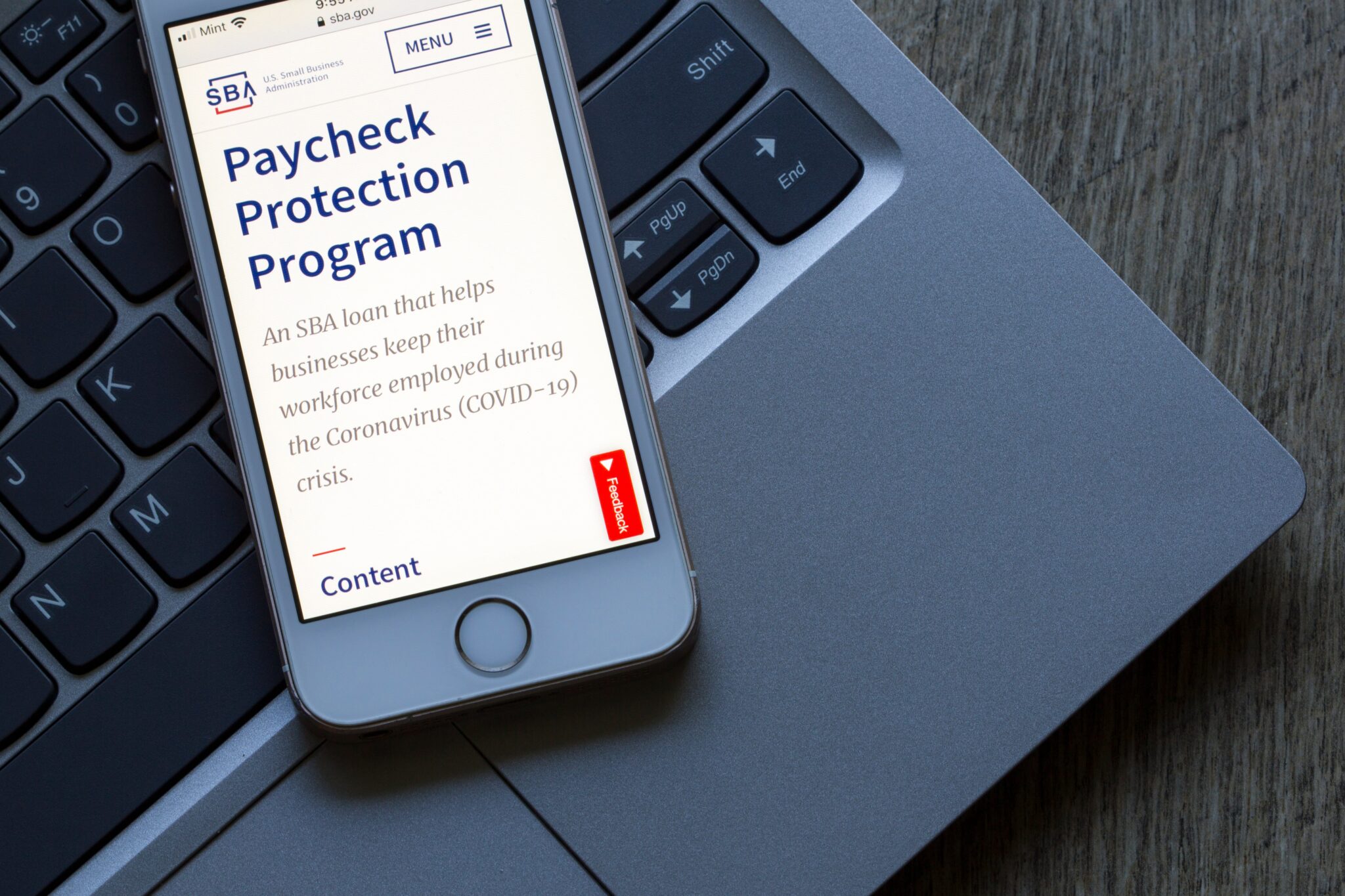This is a summary of the Small Business Administration (“SBA”) two interim final rules that cover the changes to the Paycheck Protection Program (“PPP”) recently passed by Congress and signed into law by the President on December 21, 2020.
PPP Funding Update for Small Businesses
The PPP funding update in December 2020 extended the time within which borrowers can submit an application to March 31, 2021. The two rules included in the law modify provisions of the existing program, extend it, and make allowances for certain businesses to obtain a second loan, as well as forgiveness of the first loan.
Detailed information about the two rules in the Payment Protection Plan update are provided below.
Rule #1 – First Interim Final Rule (“First IFR”)
The first rule, formally known as First IFR says that it does not intend to change any existing PPP rules that were not amended by the Economic Aid Act. The SBA plans on issuing a consolidated rule governing forgiveness and the loan review process.
In addition, it consolidates the interim final rules and provides significant guidance previously issued by SBA originally issued under the Coronavirus Aid, Relief and Economic Security Act (“Cares Act”).
New types of organizations may borrow:
- Certain nonprofit business associations, but not professional sports leagues and organizations formed to promote political campaigning that do not employ more than 300 people.
- New organizations that employ less than 500 employees or the employee standard established by the SBA for respective industries.
- Destination marketing organizations that meet the requirements for 501(c)(6) organizations.
- Housing co-ops with fewer than 300 employees
Certain businesses that may have been eligible for PPP loans under prior rules are ineligible to receive new PPP loans.
These businesses include:
- Public companies listed on a major exchange
- Recipients of grants under the Shuttered Venue Operator Grant program established by the Economic Aid Act.
Information for New PPP Loan Borrowers
New Borrowers that are submitting a PPP application may use either 2019 or 2020 to calculate the maximum loan amount.
What can PPP funding be used for?
PPP loan proceeds may be used to pay for essential goods, investment in facility modifications, and personal protective equipment required to operate safely.
How long do I have to spend my PPP funding?
Small business recipients of new PPP loan funding may select a period between 8 and 24 weeks.
There is a short form forgiveness if the loan amount is less than $150,000 under specific conditions, some of which are yet to be identified.
Rule #2 – Second Interim Final Rule (“Second IFR”)
Under certain narrower qualifications, a small business (borrower) can obtain a second PPP loan.
The criteria to receive a second round of PPP funding generally includes:
- Borrower must employ less than 300 people.
- Certain restaurants and new chains can use the employee number from specific locations rather than aggregate total for the entire organization.
- Have or will use the funds from the first loan before the second is distributed.
- Demonstrate a 25% reduction in revenue in at least one quarter of 2020 compared to 2019 or on an annual basis using tax returns for justification. In some cases, it is possible to use income statements from the operation of the business.
- The loan amount is capped at 2.5 times payroll, and specific businesses, like restaurants and hotels may use 3.5 times payroll.
- A borrower that has temporarily suspended operation is eligible for the loan, while a borrower that has permanently closed is not.
For more information on the First Draw PPP loans or Second Draw PPP loans, visit the SBA website at www.sba.gov.
To apply for Paycheck Protection Program funding, click here to find an eligible PPP lender.
By Raymond A. Garcia, Garcia & Milas Principal Attorney
Business Law Attorney in New Haven CT
For help navigating the PPP loan funding related to your small business, the business law attorneys at Garcia & Milas are ready to advise you.
Garcia & Milas Law Firm located in New Haven, CT has seasoned Business Law Attorneys that can guide you during the PPP loan process. We represent clients in a variety of business employment contexts.
For more information or to seek legal council related to your Small Business PPP loan, please contact Jane Milas or Jaime Paoletti at 203-773-3824 with your specific questions.
To learn more about our Labor and Employment Law Practice visit our webpage.

Raymond Garcia
Raymond A. Garcia is the founding principal of the firm. He has enjoyed the distinction of being named to the Connecticut Super Lawyers® list since 2006 for Construction Litigation.
Mr. Garcia combines 10 years of hands-on construction industry experience with more than 32 years of legal experience litigating complex commercial construction and franchise disputes.
Raymond has tried 50 construction cases to conclusion before courts and juries. He has tried to conclusion over 30 franchise cases. In addition, he has conducted successful appeals before state and federal appellate courts. Mr. Garcia has lectured and written extensively on many subjects. Most recently he authored articles about the application of the Due Process Clause of the United States Constitution to arbitral awards of punitive damages, use of chess clock arbitrations and mediation ethics and tactics.
This publication is for general information purposes only and is not intended to constitute legal advice. The reader should consult with legal counsel to determine how laws or decisions discussed herein apply to the reader’s specific circumstances.


